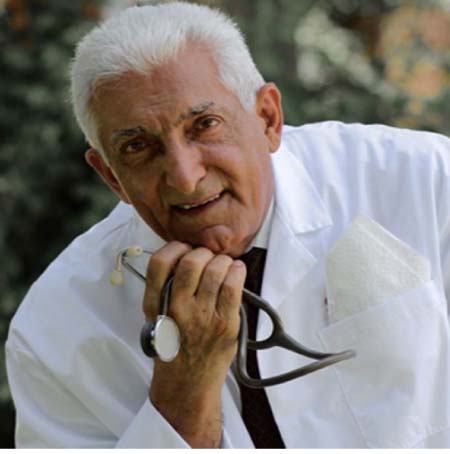
A third of all cases of infertility involved the male partner
Although some people still think of fertility as a “woman’s problem,” a third of all cases of infertility involve problems solely with the male partner. Infertility in a man may be the sole reason that a couple can’t conceive, or it may simply add to the difficulties caused by infertility in his partner.
So it’s crucial that men get tested for fertility as well as women. It’s also important that men do it early. Though some guys may want to put off being tested -- possibly to avoid embarrassment -- early testing can spare their partners a great deal of unnecessary discomfort and expense. It’s also a good way to quickly narrow down potential problems.
Getting Tested for Infertility
The first thing to do for fertility issues is to go to the doctor, typically an specialist urologist or specialist Gynaecologist After a physical exam, your doctor will probably order basemen, which will check the quality and quantity of the sperm in the semen. And yes, your doctor will want you to give the sample there or at least someplace nearby, because it’s important that the analysis take place quickly. Just remember, as sheepish as you might feel, a semen analysis is a common test, and the results could save you years and months of worry and stress.
If the first semen analysis is normal, your doctor may order a second test to confirm the results. Two normal tests usually are interpreted to mean that the man doesn’t have any significant infertility problems. If something in the results looks irregular, your doctor might order further tests to pinpoint the problem.
What a Semen (sperm test) Analysis Can Detect
• Azoospermia. No sperm are produced, or the sperm aren’t appearing in the semen.
• Oligospermia. Few sperm are produced.
• Problems with sperm motility. If sperm aren’t moving normally, they are less likely to be capable of fertilizing an egg.
• Problems with sperm morphology. Problems with the form and structure -- or morphology -- of the sperm may cause infertility.
But while these conditions may be the direct reason that you can’t conceive, they themselves may be caused by an underlying medical condition. Your doctor will probably want to investigate the issue further by ordering blood and urine tests or other procedures.
Reasons for Male Infertility
There are a wide number of reasons for male infertility. Some are caused by physical problems that prevent the sperm from being normally in semen. Others affect the quality and production of the sperm itself.
Possible Male Fertility Problems
• Sexually transmitted diseases or other infections. Genital infections such as Chlamydia and gonorrhoea can cause infertility in men. The infertility can often be resolved by treating the infection.
• Blockages, birth defects , or physical damage. In some cases, men are born with blockages in parts of the testicle or other abnormalities that prevent sperm from getting into the semen. Physical trauma to the testicles, prostate, and urethra can also result in fertility problems. Surgery can sometimes correct the problem.
• Genetic diseases. Although it’s rare, genetic illnesses such as cystic fibrosis or chromosomal disorders can cause infertility.
• Autoimmune problems. In some cases, the immune system can mistakenly target sperm cells and treat them as if they were a foreign virus. The sperm can become damaged as a result.
• Hormonal problems. Certain hormonal imbalances -- in the pituitary and thyroid glands, for instance -- can cause infertility. Your doctor may suggest treatment with medication.
• In addition, impotence may be a side effect of certain medications such as antidepressants. Talk to your doctor about ways of treating any sexual problems.
• Varicocele. Varicocele is enlarged varicose veins that develop in the scrotum and prevent blood from flowing properly. Varicocele is found in 15% of all men and in up to 40% of men being evaluated for infertility. Although they may be a factor in male infertility, recent studies question whether surgery to correct varicocele has any beneficial effect.
Other Factors in Male Infertility
• Excessive exercise; studies have shown that exercising too much may lead to the release of too many steroid hormones. This can affect fertility.
• Stress
• Obesity
• Use of drugs, alcohol, or tobacco; smoking tobacco, using drugs such as marijuana and cocaine, and taking steroids can reduce sperm counts.
• Exposure to toxins and environmental hazards; pesticides, lead, radiation, radioactive substances, mercury, and heavy metals may affect fertility.
• Heat; although the effect is usually temporary, high temperatures in the testicles could reduce sperm production. High heat could result from wearing clothing that’s too tight and traps heat, frequent bike riding, or by taking too many hot baths or saunas.
Getting Pregnant With Male Infertility
If you’re a guy who has been diagnosed with infertility, you should talk to your doctor about any behavioural changes you can make that might increase your chances of conceiving.
You should also ask about taking vitamins. Some recent studies have found that men can improve their low sperm counts by taking a combination of a folic acid and zinc.
If you have abnormal hormone levels, your doctor may recommend hormone treatment.
In some cases where the man has mild infertility, insemination or other assisted reproduction techniques, such as GIFT and ZIFT, may be helpful. One exciting treatment for male infertility and low sperm count is a form of micromanipulation called intracytoplasmic sperm injection (ICSI). This is a laboratory procedure in which sperm and eggs are retrieved from both partners, and then a single sperm is injected into an egg. The fertilized egg is then implanted into the woman’s uterus.
If the man doesn’t have sperm in his semen, one of several techniques can be used to retrieve sperm from the testicles. Success rates are generally good -- as high as 65% in some clinics. But factors such as poor sperm quality, poor egg quality, and the older age of the mother can lessen the chance of success. Other techniques that might help men with fertility problems are being developed.
Diagnosing Male Infertility
A couple who have had well-timed, unprotected sexual contact for a year should consult their doctor for a fertility evaluation. In the case of men, a thorough physical examination will be performed. Certain tests such as semen testing will determine the number, movement and shape of the sperm in the ejaculate.
Blood tests will be able to check if hormone levels that control sperm production are normal or if there may be a genetic problem. In addition, urine is also tested to check for retrograde ejaculation in men who produce low volumes of ejaculate. A testicular biopsy may be performed to ascertain whether there is an obstruction in the testicular reproductive tract or a sperm production problem is present.
What are some treatment options?
Your treatment options will depend entirely on the factors causing your infertility. The good news is that few medical fields have changed as dramatically during the past decades as reproductive medicine, particularly as it pertains to men.
Today, many conditions can be corrected with drugs or surgery thus enabling conception to occur through normal intercourse.
Surgical Therapies for Male Infertility
Among the most exciting treatment developments are microsurgical approaches to repair dilated varicose scrotal veins to improve semen quality.
You should consider treatment if you meet the following criteria:
•you and your partner are trying to conceive a child, but thus far have been unsuccessful
•you have been diagnosed with a varicocele that can be felt
•your semen analysis or sperm function tests are abnormal
•your partner has normal fertility or treatable infertility
•you are contending with a varicocele and abnormal semen
•you are an adolescent male with a varicocele and reduced testicle size
•The most of treatments are available in the Gambia
For further information visit the Governments hospitals and clinics EFSTH, number of NGO and private clinics, E-Mail azadehhassan@yahoo.co.uk and text Dr Azadeh on 7774469 /3774469 during working days from 3-6pm. Call West coast Radio FrAzadeh health live show every Tuesday from 6-7pm.
Author Dr Azadeh Senior Lecturer at the University of the Gambia, Senior Consultant in Obstetrics & Gynaecology, Clinical Director MEDICARE Clinic


